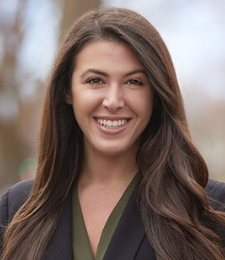I’m thrilled to announce that Bedard Law Group is the new sponsor for the Compliance Digest. Bedard Law Group, P.C. – Compliance Support – Defense Litigation – Nationwide Complaint Management – Turnkey Speech Analytics. And Our New BLG360 Program – Your Low Monthly Retainer Compliance Solution. Visit www.bedardlawgroup.com, email John H. Bedard, Jr., or call (678) 253-1871.

Every week, AccountsRecovery.net brings you the most important news in the industry. But, with compliance-related articles, context is king. That’s why the brightest and most knowledgable compliance experts are sought to offer their perspectives and insights into the most important news of the day. Read on to hear what the experts have to say this week.
Judge Grants MTD in FDCPA Case Over Lack of Standing
A District Court judge in Florida has granted a defendant’s motion to dismiss after it was sued for violating the Fair Debt Collection Practices Act because it lumped the principal, interest, fees, and expenses it was owed into one amount when filing a proof of claim after the plaintiff filed for bankruptcy protection. The judge granted the defendant’s motion because the plaintiff lacked the necessary standing to sue, since she never claimed to have suffered any harm by the defendant’s actions. More details here.

WHAT THIS MEANS, FROM NICOLE STRICKLER OF MESSER STRICKLER: Last month, a Florida District Court Judge issued another well-reasoned opinion on the issue of Article III standing. The plaintiff’s claim alleged that defendant violated the FDCPA by making false representations regarding the character, amount, or legal status of the plaintiff’s alleged debt. Specifically, plaintiff claimed that the defendant violated 15 U.S.C. § 1692e(2)(A) by misrepresenting that she owed $1,150.04 “in principal only.” According to Plaintiff, this statement violated Federal Rule of Bankruptcy Procedure 3001, which required an “itemized statement of interest, fees, expenses, or charges” be filed with the proof of claim. The District Court, however, determined that the plaintiff lacked standing, concluding that plaintiff failed to allege either a concrete or a particularized injury. In so holding, Judge Federico Moreno explained that “without alleging personal injury, [plaintiff’s] claim fails on its face.” The court’s holding reminds us to ask ourselves whether a plaintiff has indeed suffered an injury in fact when assessing a claim. Otherwise, the case is ripe for an Article III challenge.
THE COMPLIANCE DIGEST IS SPONSORED BY:

Judge Denies MTD in FDCPA Case Over Multiple Addresses on Payment Coupon
A District Court judge in New York has denied a defendant’s motion to dismiss a lawsuit that claims it violated the Fair Debt Collection Practices Act because it included two addresses on the coupon portion of a collection letter and did not specify to which address a payment should be sent. More details here.

WHAT THIS MEANS, FROM MITCH WILLIAMSON OF BARRON & NEWBURGER: Danger, Will Robinson, Danger! The recent decision is Adler v Penn Credit is notice to anyone sending letters where the bottom third acts as a payment coupon. This is just the latest in a long list of decisions on claims that a letter which contains multiple addresses for the collector is confusing and per plaintiff’s counsel “the Letter violates 15 U.S.C. § 1692e(10) because the Letter is, ‘in the eyes of the least sophisticated consumer, . . . open to more than one reasonable interpretation, at least one of which is inaccurate.’” This claim has had mixed success in the Eastern District where a certain Long Island law firm has been filing these in mass. Adler is venued in the Southern District of New York and this same firm has filed similar claims in Florida and elsewhere.
In Adler there was an address in the upper left hand corner of the coupon portion and to the right of the Plaintiff’s address was a second address under the name Penn Credit. Neither address specified that it should be used. Defendants argued that the address under the words Penn Credit would be visible if the enclosed envelope would be used and attached copies of the envelopes and an affidavit from the Compliance Manager of Penn Credit. However, this was a 12b(6) motion and the Court did not take either the envelopes or the affidavit into account. District Judge Karas, he of “Foti” fame) did point out that if Defendant could prove that both addresses accepted mail for Penn Credit there was a good chance the Defendant would prevail.
There are as many variations of this allegation, I’ve even seen cases where an address is listed on the back of the letter for use in a window envelope, but a quick fix which will protect a collector that uses the “coupon” letter.
→All Disputes to This Address
→All Payments to This address
Adding those words will act quicker than 90% alcohol on the COVID-19 virus in eradicating any possible claims of confusion etc. Bringing such a claim when these directions are on the letter is arguably frivolous by definition.
Judge Denies Stay in TCPA Case Pending Outcome of Supreme Court Ruling
A District Court judge in Washington has denied a defendant’s request to stay its Telephone Consumer Protection Act case until the Supreme Court rules in Facebook v. Duguid, ruling that it is more “desirable” to try and proceed with discovery than it would be to wait. More details here.

WHAT THIS MEANS, FROM DAVID KAMINSKI OF CARLSON & MESSER: In Lacy v. Comcast, a TCPA class action, the District Court originally stayed the case pending the outcome of Barr v. American Association of Political Consultants, on the basis that the Supreme Court could potentially invalidate the entire TCPA. Of course, that did not happen, as the Supreme Court in Barr instead chose to sever the unconstitutional government-debt exception from the remainder of the statute and allow the pre-2015 congressional amendment version of the TCPA to remain intact.
Comcast then asked the District Court to continue the stay based on the pending Facebook v. Duguid case, in which the Supreme Court will analyze/rule on the interpretation of the TCPA’s ATDS definition. The District Court declined to continue the stay, holding that discovery was needed on multiple issues regardless of Duguid’s oucome, such as the exact nature of the telephone system used by Comcast; whether Comcast also used a prerecorded voice to call the plaintiff and the putative class members; and whether there were any unintended recipients of Comcast’s calls. The District Court also noted that a stay based on Duguid could be lengthy.
Whether or not a case will be stayed based on a contested motion to stay is at the discretion of the assigned Judge and thus difficult to predict. However, the Lacy decision demonstrates that it is not particularly difficult for a TCPA plaintiff to plead around a stay based on the upcoming Duguid hearing at the Supreme Court. A TCPA plaintiff might be able to push a case outside of Duguid territory by alleging that the defendant used an artificial/prerecorded voice in addition to using an ATDS. Even if the case is strictly an ATDS case, the Lacy decision shows that other plaintiff-friendly factors, such as the anticipated duration of the stay and that certain discovery is needed regardless of Duguid, may be important to the Courts. So, a stay while Duguid is pending is not automatic and cannot be taken for granted.
It should also be noted that so far, very few contested (opposed) motions for stay have been granted. Several contested motions for stay in other cases have been denied on various grounds. One critical thing to remember in crafting your motion for stay – deny any of the plaintiff’s allegations so that the court does not use them against you.
There are numerous rulings staying TCPA lawsuits, wherein the plaintiff did not oppose the motion. Those Orders should be used proactively when filing a stay motion to show your Court how many Courts have been willing to stay TCPA litigation, pending a ruling in Duguid. Of course, the key to these ruling is the word UNOPPOSED. However, many courts do not like to clog their dockets with litigation that is in a “stay” mode as Judges are required to clear their case dockets.
Many contested motions for stay are in the pipeline. Hopefully, other courts will recognize the benefit of staying litigation, realizing that a decision issued before the Supreme Court’s Duguid ruling could result in a decision that becomes wholly erroneous.
Let the games begin on the stay front.
Idaho Extends Work From Home Guidance Until End of Year
The Idaho Department of Finance has extended its guidance allowing collection agency employees to work from home without needing to obtain branch licenses until December 31. The allowance was due to expire on September 1. More details here.

WHAT THIS MEANS, FROM STEFANIE JACKMAN OF BALLARD SPAHR: The Idaho Department of Finance should be applauded for extending it work from home guidance for collection licensees through the end of the year, as that flexibility is necessary in the current environment to allow companies to strike a balance between pandemic-related needs and keeping employees working and employed. Hopefully, the Department also will consider allowing such accommodations on a permanent basis as the collection industry continues to demonstrate its ability to monitor and oversee remote agents in a way that is both compliant and protective of consumers. There is simply no reason that regulators cannot be flexible on these sorts of licensed branch requirements as there are many benefits to agents being able to work remotely, including personal flexibility and also the ability to tap into outside job markets where there are qualified and available potential employees. Other state regulators have demonstrated a willingness to engage in these types of discussions and hopefully, Idaho also is open to exploring the same.
Colorado Schedules Meeting to Discuss State FDCPA, Announces Changes to Law’s Provisions
The administrator of the Colorado Fair Debt Collection Practices Act — the state law in Colorado governing debt collection practices — has scheduled a virtual meeting for later this month aimed at “amending and clarifying” the rules and soliciting new topic for rulemaking. More details here.

WHAT THIS MEANS, FROM MAKYLA MOODY OF GREENBERG SADA & MOODY: After long anticipation, it has been announced that the Colorado Attorney General’s office is holding a Zoom Stakeholder’s Meeting on August 25 at 2PM for the purpose of discussing rulemaking activities related to the Colorado Fair Debt Collection Practices Act. Although this meeting was anticipated to occur earlier this Spring, the pandemic outbreak has force the bulk of the Administrator’s office to work remotely; delaying many activities.
A long with the announcement and meeting agenda, which can be viewed at www.coag.gov/car, the Administrator’s staff has included a draft of the existing rules with some proposed redline changes; some of which were previously submitted to the Administrator’s office by local industry participants. Based upon topics discussed during prior stakeholder meetings, it is likely that a number of additional rule revisions, including ones that impact licensing, will be explored before the formal rulemaking process is concluded. To advance these measures, the Administrator is soliciting additional written feedback, in addition to the Zoom meeting, from any interested party. Of course, this exploratory meeting is only an initial step in the process, as the announcement makes clear that the Administrator will hold an additional hearing following the publication of the final proposed rules.
All industry members conducting business in the state of Colorado are strongly encouraged to participate in the Zoom meeting and express their suggestions to help modernize and streamline the existing rules. Industry participation in the rulemaking process is also critical for the purpose of influencing the current political environment and additional legislation, mostly unfavorable to the industry, that is expected to be introduced during Colorado next legislative session which begins in January.
The industry needs to be aware that consumer groups from across the country are targeting Colorado to advance their agendas because of the favorable climate offered by the Democrat’s control over the Executive and Legislative branches. With further uncertainly looming in the coming election, this is one of the many ways that the industry can step in and help stem the tide, ensuring balance can be maintained in the collection and accounts receivable environment.
Judge Stays CFPB’s Suit Against Collection Firm Pending Supreme Court Ruling
A District Court judge handling a lawsuit filed by the Consumer Financial Protection Bureau against a collection law firm for allegedly violating the Fair Debt Collection Practices Act has decided to stay the case until after the Supreme Court issues a ruling in a case challenging the constitutionality of a federal agency being run by a single director. More details here.

WHAT THIS MEANS, FROM HEATH MORGAN OF MALONE FROST MARTIN: The CFPB’s case against Forster & Garbus continues to be an interesting one to watch. The District Court punted the case until the next round of Supreme Court arguments for now. At some point, District Courts and the Supreme Court will have to decide the underlying issues of the CFPB’s case, which are based on allegations of lack of meaningful attorney review. “Meaningful attorney review” is not defined in the FDCPA, and there is no clear definition anywhere as it pertains to collection letters or lawsuits, hence the term “regulation by enforcement” when a government actor like the CFPB brings a case alleging violations of the FDCPA based on an unclear standard. If you recall, this practice instituted by former CFPB Director Richard Cordray was declared “dead” by his predecessor, interim director Mick Mulvaney. However, regulation by enforcement has risen from the dead under the CFPB led by Kathy Kraninger, which has now brought two cases against the industry against defendants based on unclear standards and statutes: Forster & Garbus, and FCO Holdings.
This case will be an important one to watch as it will hopefully help the industry determine the extent of the limits of regulation by enforcement and how long this “zombie” regulatory practice will live.
Appeals Court Upholds Dismissal of FCRA Suit Because Plaintiff Failed to Dispute Debt With CRA
Because an individual chose to only dispute a debt to the furnisher and did not notify a credit reporting agency of the dispute, the individual does not have standing to sue under Section 1681-2(b) of the Fair Credit Reporting Act, the Third Circuit Court of Appeals ruled yesterday in affirming a lower court’s dismissal of the suit. More details here.

WHAT THIS MEANS, FROM AYLIX JENSEN OF MOSS & BARNETT: In this case, the plaintiffs alleged that the defendant furnisher violated the Fair Credit Reporting Act (“FCRA”) by failing to conduct a reasonable investigation and correct information in one of their credit reports after being notified that certain reported information was incorrect. The furnisher moved to dismiss the case for failure to state a claim. The plaintiffs successfully cross-moved to amend their Complaint. The Amended Complaint did not reference a specific provision of the FCRA.
In addressing the furnisher’s motion to dismiss, the district court considered two potential available bases for relief. First, the district court concluded that the plaintiffs failed to state a claim pursuant to 15 U.S.C. § 1681s-2(a) because Section 1681s-2(a) does not provide a private right of action. Second, the district court concluded that the plaintiffs failed to state a claim for a violation of Section 1681s-2(b) because: (1) they did not plead that they notified a credit reporting agency (“CRA”) of the disputed accuracy of the credit report and (2) they did not allege that a CRA notified the furnisher of the dispute. The United States District Court for the District of Connecticut dismissed the Amended Complaint with prejudice. The plaintiffs appealed.
The Second Circuit Court of Appeals affirmed the district court’s decision. The Court agreed that the FCRA does not provide a private right of action for violations of Section 1681s-2(a). The Court further agreed that the plaintiffs’ allegation that they notified the furnisher directly of their dispute was insufficient to state a claim under Section 1681s-2(b).
This decision confirms that while Section 1681s-2(b) imposes certain investigative and corrective duties and procedures on a furnisher, those duties are only triggered upon notification of a dispute by a CRA; notice of a dispute received directly from the consumer is insufficient.
Judge Denies MTD in Case Over Collection Suit Filed Against Spouses Who Weren’t Married When Debt was Incurred
In a case that was first reported by Manny Newburger and Brit Suttell from Barron & Newburger, a District Court judge in Washington has denied a defendant’s motion to dismiss after it was sued for violated the Fair Debt Collection Practices Act because it filed a collection suit against an individual and her husband, even though she was not married at the time the debts were incurred. More details here.

WHAT THIS MEANS, FROM VIRGINIA BELL FLYNN OF TROUTMAN PEPPER: In Persilver v. Merchs. Credit Corp., No. 2:19-cv-01922-RAJ (W.D. Wash. Aug. 10, 2020), the defendant, Merchants Credit Corporation (“Merchants”), had previously filed a collections action seeking to recover past due medical bills incurred by Teresa Jean Smith. This suit named both Smith and her husband – identified as “John Doe Smith” – as defendants. Smith’s spouse, whose actual name is Ulysses Persilver, was dismissed from the action when it was shown that he was not married to Smith at the time she incurred the debt.
Persilver then filed suit against Merchants, alleging that it violated Section 1692e of the Fair Debt Collection Practices Act (“FDCPA”), which prohibits a debt collector from using “any false, deceptive, or misleading representation or means in connection with the collection of any debt.” Merchants moved to dismiss, arguing that it had not actually named Persilver in the collections action. The Court rejected this argument, finding that Persilver had alleged sufficient facts to state a claim under the FDCPA.
The takeaway from this case is that, when attempting to collect from married couples, debt collectors should make sure that the debt owed does not predate the marriage before proceeding against both spouses.
Licensing Bill in Calif. Moves Closer to Becoming Law; Sponsor Says Industry Supports Measure
A bill that would require debt collectors in California to obtain licenses in order to stay in business moved one step closer to becoming a law yesterday, after being approved by the Assembly Banking and Finance Committee. The bill, SB 908, has already been approved by the state Senate. It now moves to the Assembly’s Appropriations committee for consideration. More details here.

WHAT THIS MEANS, FROM HELEN MAC MURRAY OF MAC MURRAY & SHUSTER: Well this is an easy one. Most states have laws licensing debt collectors and debt buyers and all states should. As of now, the bill exempts banks and credit unions, but not attorneys. That’s rankling some of the industry folks. Many industry groups strongly support licensure that is reasonably written. It’s really the quickest and easiest way for a consumer to determine whether they are dealing with a legitimate collector.
I’m thrilled to announce that Bedard Law Group is the new sponsor for the Compliance Digest. Bedard Law Group, P.C. – Compliance Support – Defense Litigation – Nationwide Complaint Management – Turnkey Speech Analytics. And Our New BLG360 Program – Your Low Monthly Retainer Compliance Solution. Visit www.bedardlawgroup.com, email John H. Bedard, Jr., or call (678) 253-1871.








